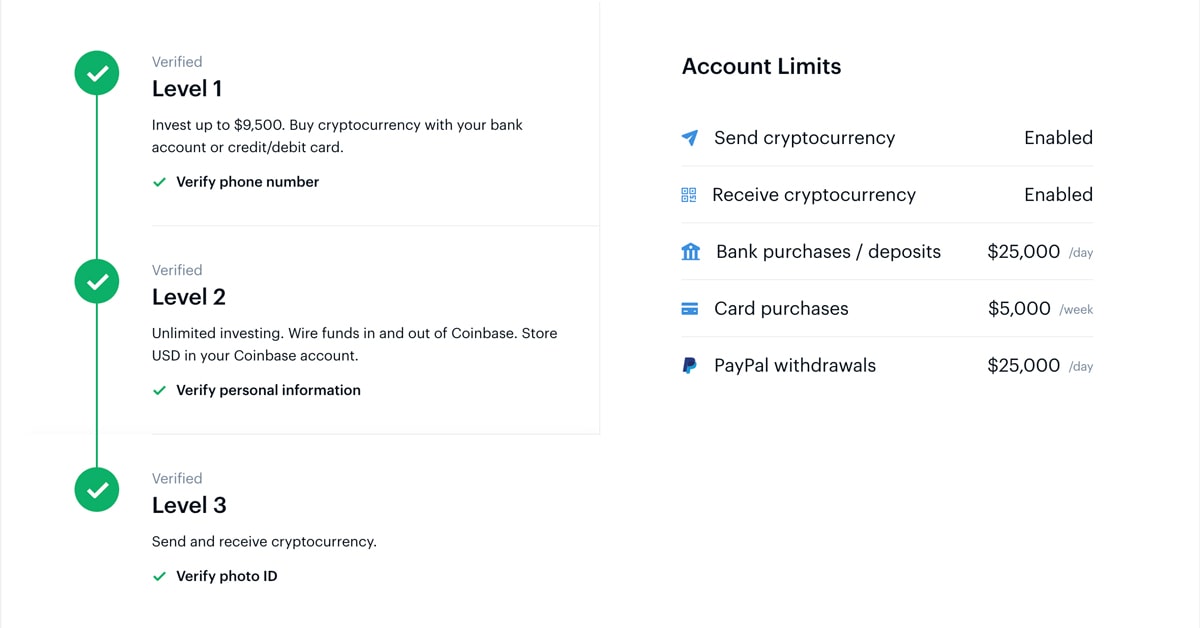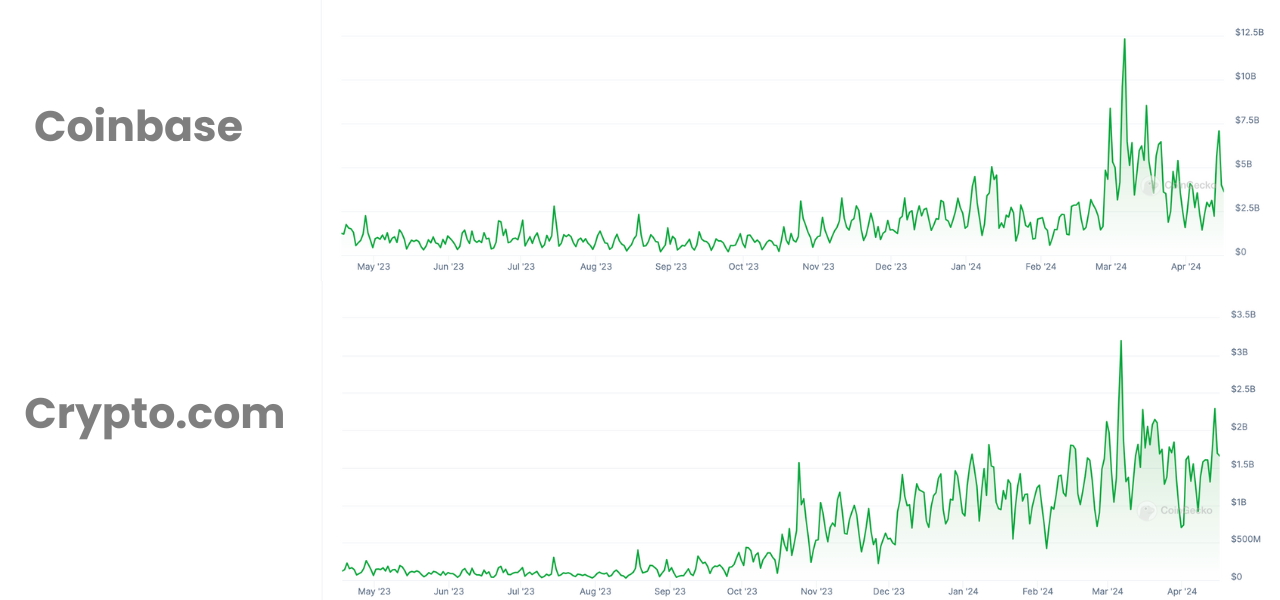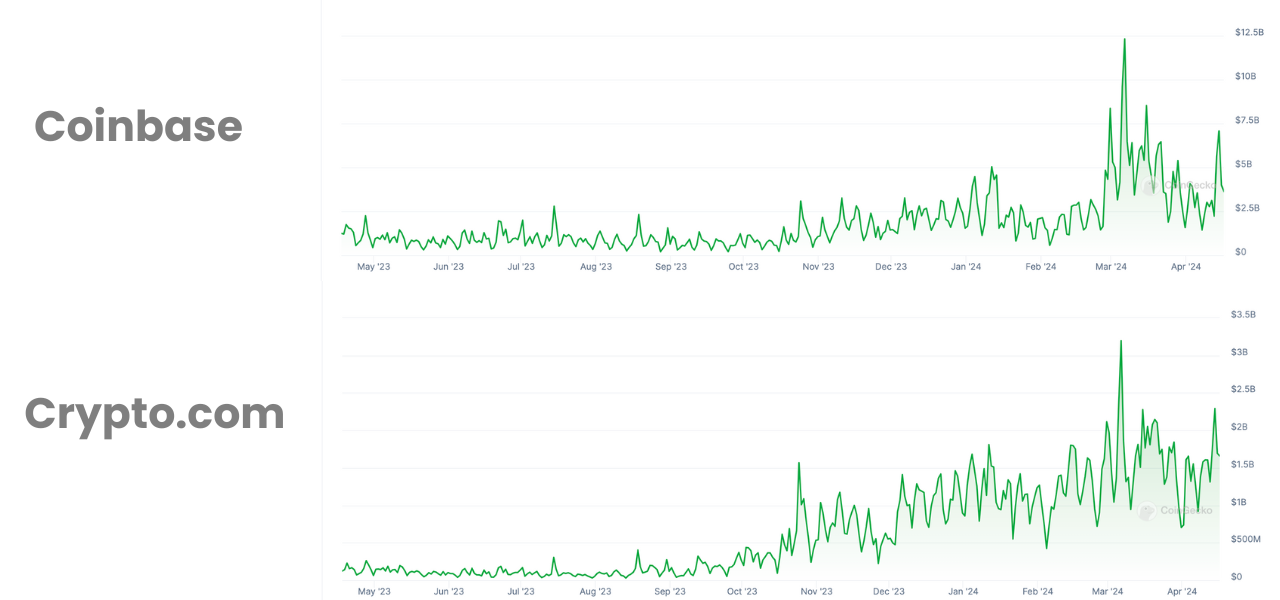Crypto.com vs Coinbase: Fees, security, and features for Canada – Crypto.com vs Coinbase: Fees, security, and features for Canada – the ultimate Canadian crypto clash! Choosing the right platform can feel like navigating a digital minefield, especially with the sheer number of options available. This deep dive compares these two giants, examining fees (because who
-doesn’t* love saving money?), security measures (your hard-earned crypto deserves the best protection), and features specifically tailored for Canadian users.
Get ready to arm yourself with the knowledge to make the smartest choice for your crypto journey.
We’ll dissect everything from transaction fees for Bitcoin, Ethereum, and Litecoin to the nitty-gritty details of security protocols and user interfaces. We’ll even tackle the legal landscape in Canada, ensuring you’re compliant and confident in your crypto endeavors. Think of this as your ultimate guide to conquering the Canadian crypto scene, one comparison at a time.
Fees Comparison

Choosing between Crypto.com and Coinbase in Canada often boils down to the nitty-gritty details – namely, fees. Both platforms offer a range of services, but their pricing structures can differ significantly, impacting your bottom line. Let’s dive into a head-to-head comparison, armed with our magnifying glasses and calculators.
Transaction Fees for Bitcoin, Ethereum, and Litecoin, Crypto.com vs Coinbase: Fees, security, and features for Canada
This table presents a snapshot of transaction fees for buying and selling Bitcoin (BTC), Ethereum (ETH), and Litecoin (LTC) on Crypto.com and Coinbase in Canada. Note that these fees can fluctuate based on market conditions and the specific payment method used. Always check the current fee schedule on each platform before making a transaction.
| Cryptocurrency | Crypto.com Fee | Coinbase Fee | Fee Difference |
|---|---|---|---|
| Bitcoin (BTC) | Variable, typically lower for larger trades; check their fee schedule for specifics. | Variable, often slightly higher than Crypto.com for smaller trades; check their fee schedule for specifics. | Varies depending on trade size and market conditions. |
| Ethereum (ETH) | Variable, similar to BTC fee structure. | Variable, similar to BTC fee structure. | Varies depending on trade size and market conditions. |
| Litecoin (LTC) | Variable, typically lower for larger trades; check their fee schedule for specifics. | Variable, often slightly higher than Crypto.com for smaller trades; check their fee schedule for specifics. | Varies depending on trade size and market conditions. |
Fee Structures and Hidden Costs
Both Crypto.com and Coinbase employ variable fee structures, meaning the costs depend on several factors. For example, the type of order (market vs. limit), the trading volume, and the payment method all influence the final fee. Hidden fees are rare, but it’s crucial to review the complete fee schedule on each platform’s website before committing to a trade.
Choosing between Crypto.com and Coinbase in Canada? It’s a toss-up between sleek design and reliable old-school, right? But before you dive into those fees and security features, remember your trades aren’t just happening in a vacuum. Understanding the impact of market timing is crucial, so check out this article on Canadian Forex Market Hours and Their Impact on Trading Strategies to optimize your crypto game.
After all, even the best platform won’t save you from bad timing! Back to Crypto.com vs. Coinbase: Let the battle of the Canadian crypto exchanges begin!
Unexpected charges could include network fees (for cryptocurrency transactions) or potential international transfer fees if you’re using a non-Canadian bank account.
Different Fee Types
Trading fees are the most prominent, but both platforms also charge for deposits and withdrawals. Deposit fees vary depending on the payment method (credit card, debit card, bank transfer). Withdrawal fees for cryptocurrencies are often network fees, meaning they’re paid to the blockchain network itself, not the exchange. Crypto.com sometimes offers lower or waived fees for certain high-volume traders as an incentive.
Coinbase’s fee structure is generally more transparent, with clearly stated fees for each transaction type.
Choosing between Crypto.com and Coinbase in Canada? It’s a fees, security, and features free-for-all! But before you dive into crypto, you might need some USD – check out the exchange rates if you’re planning to convert your funds, like Converting 433 CAD to USD using Questrade’s exchange rates , to get the best bang for your buck.
Then, armed with your shiny new USD, you can conquer the crypto jungle and decide which platform reigns supreme.
Impact of Transaction Volume on Fees
Generally, both platforms offer discounted fees for higher transaction volumes. This incentivizes frequent and larger trades. Think of it like a loyalty program, but for your crypto transactions. The exact discount structure varies, so consulting each platform’s fee schedule is necessary to understand how your trading volume will affect your costs. For instance, a user trading $10,000 worth of Bitcoin might receive a significantly lower fee percentage than someone trading only $100.
Security Measures
Choosing a crypto exchange is like choosing a bank – you need to trust them with your hard-earned digital dough. Both Crypto.com and Coinbase are established players, but their security approaches differ in subtle (and sometimes not-so-subtle) ways. Let’s dive into the nitty-gritty of how they keep your crypto safe in the Great White North.
Choosing between Crypto.com and Coinbase in Canada? It’s a coin toss, really, depending on your crypto cravings. But before you dive headfirst into digital assets, maybe consider practicing your trading skills first with something a little less volatile; check out Comparing Forex.com Demo Account with Other Canadian Brokers for a safer, albeit less exciting, learning curve.
Then, armed with newfound trading wisdom, you can confidently tackle those Crypto.com vs. Coinbase fee comparisons and security audits.
Security is paramount when dealing with cryptocurrency, especially for Canadian users who may have unique regulatory considerations. Both platforms employ various measures to protect user assets and personal information, but understanding the specifics of each is crucial for making an informed decision. This comparison will highlight key differences and similarities in their security features.
Insurance Coverage
The question of insurance is crucial. What happens if a catastrophic event occurs, like a major security breach? While neither platform explicitly advertises a blanket insurance policy covering all user losses in the event of a hack, both employ robust security measures and hold reserves to mitigate risks. However, the specifics of their internal risk management and insurance strategies are not publicly disclosed in detail.
It’s important to note that relying solely on an exchange’s security is never a complete solution; best practices, such as diversifying your holdings and using hardware wallets, remain essential.
Two-Factor Authentication (2FA) Methods
2FA is your first line of defense against unauthorized access. Both Crypto.com and Coinbase offer various 2FA methods, enhancing account security significantly. Understanding the nuances of each platform’s implementation is vital.
Choosing between Crypto.com and Coinbase in Canada? It’s a tough call, weighing fees against security features. Need a break from the crypto-drama? Check out the latest football news for a dose of thrilling tackles and questionable referee calls – then get back to comparing those transaction fees and insurance policies! Ultimately, the best platform depends on your individual needs and risk tolerance.
- Crypto.com: Offers standard 2FA options like Google Authenticator, Authy, and SMS verification. They also emphasize the importance of enabling 2FA and regularly reviewing security settings.
- Coinbase: Similarly, Coinbase provides a range of 2FA methods, including authenticator apps (like Google Authenticator and Authy), and SMS verification. They also promote the use of strong passwords and regular security audits.
Security Protocols
Beyond 2FA, a multitude of other security protocols are implemented by both platforms. These protocols are often less visible to the user but are critical to the overall security posture.
- Crypto.com: Employs various security protocols, including encryption of data both in transit and at rest, regular security audits, and advanced threat detection systems. Specific details about the types of encryption and audit frequency are not publicly available.
- Coinbase: Coinbase also utilizes a layered security approach. This includes advanced encryption technologies, rigorous security monitoring, and incident response teams dedicated to handling security incidents. Again, specific details about the technical implementation of these protocols are proprietary information.
Feature Set Comparison for Canadian Users

Choosing between Crypto.com and Coinbase in Canada? It’s like picking between a caffeinated squirrel and a well-organized librarian – both get the job done, but in wildly different ways. Let’s delve into the nitty-gritty of their feature sets to help you find your perfect crypto companion.
This section compares the cryptocurrency offerings, user interfaces, mobile app experiences, and platform-specific features catering to Canadian users on both platforms. Prepare for a whirlwind tour of digital assets and user-friendliness!
Cryptocurrency Availability
The range of cryptocurrencies offered significantly impacts a platform’s appeal. Below is a comparison of the availability of popular cryptos in Canada on both Crypto.com and Coinbase. Note that availability can change, so always verify directly on the platform’s website.
| Cryptocurrency | Crypto.com Availability | Coinbase Availability | Notes |
|---|---|---|---|
| Bitcoin (BTC) | Yes | Yes | Widely traded on both platforms. |
| Ethereum (ETH) | Yes | Yes | Another staple on both platforms, various trading pairs available. |
| Dogecoin (DOGE) | Yes | Yes | Its meme-status ensures its presence on most exchanges. |
| Solana (SOL) | Yes | Yes | A popular altcoin, trading pairs may vary. |
| Cardano (ADA) | Yes | Yes | Check for specific trading pairs offered on each platform. |
| Shiba Inu (SHIB) | Yes | Yes | Its popularity means it’s likely available on both, though check for trading pairs. |
User Interface and User Experience (UI/UX)
The user interface is the face of the platform; a good UI/UX makes even the most complex tasks feel simple. Both platforms offer distinct approaches.
Choosing between Crypto.com and Coinbase in Canada? It’s a tough call, weighing fees against security features. But if you’re feeling adventurous and want to explore other options, maybe check out the Top Rated Forex Trading Apps for Canadian Residents – you might find a better fit for your risk appetite. Then, armed with that knowledge, you can return to the Crypto.com vs.
Coinbase battle with renewed clarity!
Crypto.com often receives praise for its sleek, modern design, while Coinbase is known for its more straightforward, beginner-friendly interface. Ultimately, the “better” UI/UX is subjective and depends on individual preferences and technical expertise. Some users might find Crypto.com’s advanced features overwhelming, while others might find Coinbase too simplistic.
Mobile App Functionalities
In today’s mobile-first world, the mobile app experience is crucial. Both Crypto.com and Coinbase provide mobile apps for iOS and Android, offering core functionalities like buying, selling, and tracking crypto assets.
Both apps generally receive positive reviews, though specific features and user experience can vary based on user feedback and app updates. Checking recent app store reviews before downloading is always a good idea.
Choosing between Crypto.com and Coinbase in Canada? It’s a coin toss, really, depending on your risk tolerance and fee sensitivity. But if you’re looking for something completely different, perhaps consider diversifying your portfolio – maybe check out How to Open a Forex Account in Canada with Questrade Global for a change of pace. Then, armed with forex savvy, you can return to the crypto arena with a more holistic investment strategy.
Back to Crypto.com vs Coinbase: the battle of the crypto giants rages on!
Platform-Specific Features Beneficial to Canadian Users
Canadian users benefit from features that streamline transactions in CAD. Both platforms support CAD deposits and withdrawals, but the specifics and associated fees might differ. Crypto.com’s Visa card offering is a notable feature, allowing users to spend their crypto directly. Always compare fees and available features before committing to a platform.
Regulatory Compliance and Legal Aspects in Canada

Navigating the Canadian crypto landscape can feel like traversing a particularly icy mountain pass – treacherous, but with stunning views if you choose the right path. Both Crypto.com and Coinbase operate within Canada, but their approaches to regulatory compliance and legal considerations differ subtly, impacting your user experience. Understanding these nuances is key to a smooth and legally sound crypto journey.Crypto.com and Coinbase’s operations in Canada are subject to the ever-evolving regulatory framework overseen by the Ontario Securities Commission (OSC), the Financial Transactions and Reports Analysis Centre of Canada (FINTRAC), and other provincial securities commissions.
These bodies are primarily concerned with investor protection, preventing money laundering, and ensuring market integrity. Therefore, the platforms’ compliance with these regulations is paramount for both the platforms and their Canadian users.
Know Your Customer (KYC) and Anti-Money Laundering (AML) Procedures
Both Crypto.com and Coinbase implement robust KYC/AML procedures in compliance with Canadian regulations. This typically involves verifying user identity through the submission of government-issued identification documents and proof of address. Failure to comply with these procedures can lead to account restrictions or even closure. The specific requirements and verification methods may vary slightly between the platforms, but both prioritize compliance with FINTRAC’s guidelines to prevent the use of their platforms for illicit activities.
The process, while sometimes tedious, is a necessary security measure to protect both the user and the platform from financial crime.
Legal Jurisdictions and Implications for Canadian Users
Crypto.com and Coinbase are incorporated in different jurisdictions. Understanding these differences is important, though the impact on the average Canadian user is relatively minimal. The legal frameworks of their respective jurisdictions (which are not specified here, to avoid giving misleading legal advice) impact their operational structures and regulatory oversight, but both platforms must still adhere to Canadian law to operate within the country.
This means Canadian users are largely protected by Canadian regulations regardless of the platform’s base of incorporation. However, differences in data protection laws and dispute resolution mechanisms could potentially impact users in less common scenarios.
Specific Legal Considerations for Canadian Cryptocurrency Users
Choosing between Crypto.com and Coinbase involves weighing the implications of their different legal structures and compliance approaches, though the differences are usually minor for the average Canadian user. For example, while both platforms offer a range of cryptocurrencies, the specific availability of certain assets might differ based on regulatory approvals in each platform’s jurisdiction and in Canada. Users should always consult with a legal professional for specific advice tailored to their circumstances and investment strategies before making any significant cryptocurrency transactions.
Remember, the crypto world is constantly evolving, and legal frameworks are updated regularly. Staying informed is key.
Customer Support and Accessibility for Canadian Users: Crypto.com Vs Coinbase: Fees, Security, And Features For Canada

Navigating the sometimes-murky waters of cryptocurrency can leave you feeling like you’re adrift at sea. A reliable life raft, in this case, is excellent customer support. Let’s see how Crypto.com and Coinbase fare in providing assistance to Canadian users, focusing on accessibility and response times. We’ll dive into the specifics of their support channels, website and app usability, and the speed and helpfulness of their responses.
Support Channels Available to Canadian Users
Both Crypto.com and Coinbase offer a range of support channels, although the specifics and ease of access can vary. Coinbase generally leans towards a more self-service model, with extensive help articles and FAQs designed to resolve common issues. Crypto.com, on the other hand, often advertises a broader array of contact options. However, user experiences can differ widely, with reports suggesting that reaching a live agent can be challenging for both platforms.
Website and Mobile App Accessibility
Website and app accessibility is crucial for inclusivity. Both platforms offer their services in English and French, catering to Canada’s bilingual population. However, the level of accessibility beyond language support varies. While both platforms strive for user-friendly interfaces, users with disabilities might encounter varying degrees of ease of navigation and use. For example, the presence and effectiveness of screen reader compatibility or keyboard navigation could differ significantly.
Specific features aimed at improving accessibility (like adjustable font sizes or color contrast options) should be individually assessed on each platform.
Response Time and Effectiveness of Customer Support
Judging the effectiveness of customer support is subjective and depends heavily on the nature of the issue. However, user reviews and online forums often paint a picture of varying response times and levels of helpfulness. Many users report lengthy wait times for responses, particularly for complex or unusual problems. Others describe experiences where support agents were knowledgeable and efficient, quickly resolving their issues.
Unfortunately, there’s no single definitive metric to measure this, and experiences can vary significantly.
Comparison of Response Times and Support Channels
The following table summarizes the available support channels and provides a general overview of reported response times. Keep in mind that these are based on user experiences and may not reflect every individual’s experience. Response times are highly variable and depend on several factors, including the complexity of the issue and the time of day.
| Feature | Crypto.com | Coinbase |
|---|---|---|
| Email Support | Offered, but response times can be slow. | Offered, with variable response times; often directing users to self-service resources first. |
| Live Chat Support | Sometimes available, but availability can be inconsistent. | Generally not available for all issues; primarily directs users to help articles. |
| Phone Support | Generally not readily available. | Typically not available for general support inquiries. |
| Help Center/FAQ | Comprehensive, but may not cover all issues. | Extensive and well-organized; a primary point of contact for most users. |
| Social Media Support | Active on various platforms, but not a guaranteed route to resolution. | Active on various platforms, primarily for announcements and general inquiries. |
Final Wrap-Up
So, Crypto.com or Coinbase? The winner isn’t a one-size-fits-all answer. Ultimately, the best platform for you depends on your individual needs and priorities. If rock-bottom fees are your top concern, you might find one exchange more appealing. If robust security is paramount, another might take the lead.
By carefully weighing the factors discussed – fees, security, features, and legal compliance – you can confidently choose the platform that best suits your Canadian crypto adventures. Happy trading!
